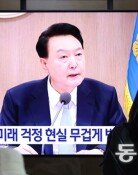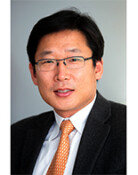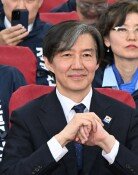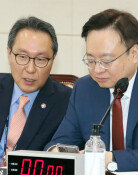[Column] Looking forward to female governors and mayors
[Column] Looking forward to female governors and mayors
Posted June. 06, 2014 04:27,
Paris elected its first woman mayor, Anne Hidalgo, this February, drawing peoples attention. She had run for chief office of the 15th arrondissement several times where many Korean French people reside. She stood for the local election in 2008 when I was working as a foreign correspondent in Paris. Since I was living in the 15th arrondissement, I became familiar with her name through election pamphlets delivered home. Although she failed to win the election, she has made a bigger achievement by being elected as Paris first female mayor.
According to Wikipedia, the online encyclopedia, elected female mayors of cities with over one million people were elected in Montevideo of Uruguay in 2010, Yokohama of Japan and Sofia of Bulgaria in 2009, Milan of Italy and Warsaw of Poland in 2006, Athens of Greece in 2002 and Sao Paulo of Brazil in 1988, other than Paris. Korea has elected its first female president, but there has been no woman metropolitan city mayor or provincial governor.
Situations are a bit different for the heads of lower-level governments. In the latest local elections, the three major districts in the south of Seoul, namely Seocho, Gangnam and Songpa, elected female district chiefs. Shin Yeon-hee, the head of Gangnam-gu Office, and Park Chun-hee, the head of Songpa-gu Office, were re-elected and Jo Eun-hee was newly elected for Seocho-gu Office. In Yangcheon-gu, a district west of Seoul, Kim Su-yeong, a woman candidate, was elected. In other major cities, Kim Eun-suk, the head of Jung-gu Office of Busan, and Yun Su-yeong, the head of Jung-gu Office of Daegu, have succeeded in winning the third term. Song Suk-hee of Sasang-gu Office, Busan, and Hong Mi-yeong of Bupyeong-gu Office, Incheon, have won reelection. In Gwacheon, Gyeonggi Province, Shin Gye-yong, a woman candidate, has become the citys first female mayor. However, no woman was elected for county governors office in rural constituencies.
When the local election system was first introduced in Korea in 1995, Jeon Jae-hee was elected as mayor of Gwangmyeong, Gyeonggi Province for the first time as a woman. Since then, the number of women elected as heads of local governments has increased to two in 2002, three in 2006 and six in 2010. And this year, a total of nine women were elected as heads of lower-level local governments. Nevertheless, there has been no woman elected for metropolitan mayoral or gubernatorial office. Jeon has served as a lawmaker three times since then. Given her career, it must be worth trying to run for governors office. But she stepped back after failing to be re-elected in the 2012 general election. For women to be elected as heads of upper-level local governments, more women should get experience in lower-level local governments and the National Assembly.
Editorial Writer Song Pyeong-in (pisong@donga.com)
Headline News
- Israel prepares for retaliation against Iran
- Samsung reclaims top spot, surpassing Apple in smartphone market
- 77% of Koreans in 20s and 30s are 'Kangaroo Tribe' due to job crisis
- KBO referees embroiled in controversy over ABS decision concealment
- Inflation, oil price surge put double shock on global economy







